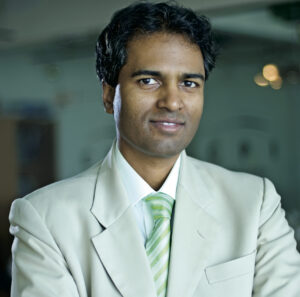A few days ago, I had the opportunity of interacting with Amiruddin Thanawalla, the Managing Director of Dubai-headquartered Prime Focus Group, which as you probably would know manufactures airside equipment. (Before I go any further, this is not intended to be a plug for the company but merely an expression of what’s going on in […]
A few days ago, I had the opportunity of interacting with Amiruddin Thanawalla, the Managing Director of Dubai-headquartered Prime Focus Group, which as you probably would know manufactures airside equipment. (Before I go any further, this is not intended to be a plug for the company but merely an expression of what’s going on in the mind of a manufacturer – it could be anyone in the vast GCC region universe, and Thanawalla is a representative.)
While he described his company in great detail, he also spoke about issues bothering him – some pandemic-induced, some long-standing. He spoke with palpable pain of how he used to operate two shifts and how the virus had shrunk the daily schedule to one shift with overtime. Despite that, he said, the company was holding strong, banking on its conservative approach to doing business.

Surendar Balakrishnan
The stand-out segments in the chat I had with him were his observations on how the market had evolved in the 21st century. He spoke of disruption, of how extremely small, hurriedly constituted, business-at-any-cost manufacturers were disturbing a delicate balance and affecting the playing field. He said he was waiting for consolidation to happen, so that mid- and large-scale players in the organised sector could continue responsible manufacturing and distribution practices, keeping in mind energy efficiency, thermal comfort, air quality and safety.
Thanawalla spoke with equal passion about introducing more structure to enable business growth. Praising the UAE government for its business-enabling measures and system of quick decision-making, he said he wanted the country’s leadership to give a further boost to the marketplace, especially the SME sector. He said the UAE had done a commendable job at marketing the country of origin, which was of great help to manufacturers in the country. Along with that, he said, it would be fantastic if the UAE further strengthened the hands of exporters by tweaking the regimen of port charges – especially introducing a system where the cost of unloading a container would be higher than loading it, which would help from an export point of view.
He also highlighted the need for a GCC-region-wide system of documentation containing uniform language on identification of goods. Such uniformity – perhaps something akin to the EU model of trade without borders – he said, would help business processes, considering that many of the goods exiting the UAE go to Saudi Arabia and Oman, among others.
Thanawalla also proposed an exchange mechanism or credit forum, covering the entire GCC region, for addressing non-payment of credit-notes, quite a bane of SMEs. Credit guarantees across the length and breadth of the GCC region, he said, would make life easier for manufacturers and traders and would boost confidence.
Copyright © 2006-2025 - CPI Industry. All rights reserved.